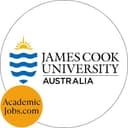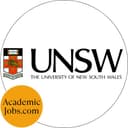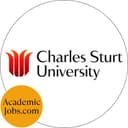How to Excel as a Research Assistant in Australia
By Jarrod Kanizay
Thinking about a career as a research assistant in Australia? You’re in the right place! This exciting opportunity provides valuable experience and opens doors in both academic and industry research.
Here’s everything you need to know to get started and excel as a research assistant in Australia.
Find Research JobsRole of a Research Assistant in a Research Team
A research assistant in Australia supports various research projects by collecting and analysing data, conducting literature reviews, and preparing reports. Whether in a university, a private company, or a government body, they are essential to the success of research activities. Research assistant usually work under the supervision of research fellow.
- Data Collection: Performing experiments, conducting surveys, or gathering data in alignment with data set by the senior team members. Research assistants may work in specific divisions such as the Immunology division.
- Data Analysis: Utilising tools like SPSS, R, or Python to analyse dataset while also preparing models to display the results.
- Literature Review: Reviewing and summarising existing research to support new studies.
- Report Preparation: Writing up findings and preparing presentations for stakeholders. Research assistants may support specific projects like a history project.
How to become a research assistant?
1. Complete a Bachelor’s Degree
Choose a subject related to your research interests. To start as a research assistant in Australia, a bachelor’s degree in a relevant field is typically required. Fields such as psychology, biology, sociology, and health sciences are commonly pursued.
2. Consider Advanced Degrees
Pursuing an honours year or a master’s degree can enhance your qualifications and job prospects
3. Gaining Experience
Practical experience is crucial for becoming a successful research assistant. Internships, volunteering, or part-time roles provide hands-on experience in research settings
How to Gain Experience for Researchers
1. Internships
Apply for internships in academic or industry settings.
2. Volunteering
Volunteer on research projects or assist professors.
3. Entry-level Roles
Seek positions in research labs or organisations.
How much do research assistants make?
The salary for a research assistant in Australia varies depending on location, experience, and research field.
By Experience:
- Early Career (1-4 years): AU$65,000 - AU$75,000 per year
- Mid-Career (5-9 years): AU$75,000 - AU$85,000 per year
- Experienced (10+ years): AU$90,000 - AU$100,000 per year
By Location:
- Sydney: AU$98,000 - AU$100,000 per year
- Melbourne: AU$95,000 - AU$97,000 per year
- Brisbane: AU$90,000 - AU$92,000 per year
Are you ready to become a research assistant in Australia? Look for assistant researcher Jobs here!
In-Demand Research Fields: Clinical Trials
- Biomedical Research: Focused on medical advancements and public health. Research assistants often contribute to medical research projects.
- Data Science: Leveraging big data and analytics across sectors.
- Environmental Science: Addressing climate change and sustainability.
- Social Sciences: Studying human behaviour and societal trends.
- Clinical Trials: Essential for the development and testing of new medical treatments.
Tips for Those Starting Out
Here’s how to make a strong start as a research assistant in Australia:
1. Develop Key Skills
- Analytical Skills: Master data analysis and use of statistical tools.
- Attention to Detail: Ensure precision and accuracy in research tasks.
- Technical Proficiency: Get comfortable with research software like SPSS, R, or Python.
- Communication: Develop strong written and verbal communication skills for reporting.
- Organisational Skills: Efficiently manage tasks and maintain detailed records.
2. Build a Strong Network
- Attend Conferences: Engage with professionals and learn about new developments.
- Join Professional Groups: Become part of organisations like the Australasian Research Management Society (ARMS).
- Online Engagement: Use forums and LinkedIn to connect with peers and experts. Networking helps you become a valuable member of a research team.
3. Craft a Stellar Application
- Tailor Your Resume: Highlight relevant skills, experiences, and coursework. Tailoring your resume to match the position description is crucial.
- Write a Compelling Cover Letter: Express your enthusiasm for the role and how you fit the position.
- Include Recommendations: Provide strong references from professors or previous employers.
4. Ace the Interview
- Research the Project: Understand the project’s goals and recent developments.
- Prepare Answers: Be ready to discuss your research experience and skills.
- Ask Insightful Questions: Show your understanding and interest in the research.
5. Commit to Continuous Learning
- Attending Workshops: Learn new research methodologies and techniques.
- Seeking Feedback: Regularly ask for input to improve your work.
- Documenting Your Work: Keep detailed records and build a strong portfolio.
Finding research job openings?
- ✓ Ready to start applying? Visit our research assistant job openings in Australia to find current vacancies from top Universities around the world that will suit your qualification and career goals. You can also find other higher education jobsfrom top universities based on your interest.
Conclusion
Starting a career as a research assistant in Australia is a promising path that opens various opportunities in the research field. With the right education, practical experience, and essential skills, you can build a successful and rewarding career.
Remember, continuous learning and effective networking are key to advancing in this dynamic field. Research assistants receive substantial research support in their roles, which includes attractive remuneration packages and benefits, which makes it an interesting field to pursue.




.jpg&w=128&q=75)
